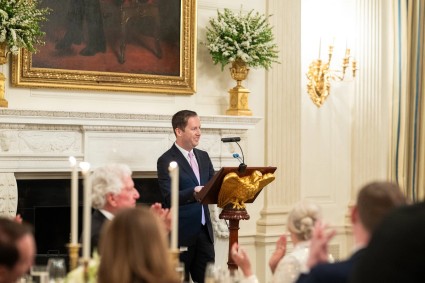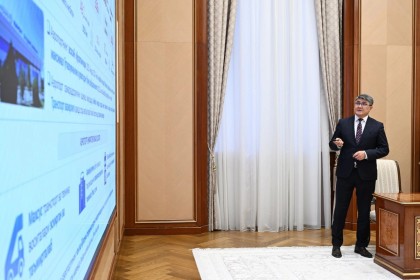The United Nations Development Programme (UNDP) in Uzbekistan, the State Committee for Ecology and Environmental Protection (SCEEP) and the United Nations Economic Commission for Europe (UNECE) are initiating a new joint project entitled “Master Planning and Innovative Financial Solutions to Support the Yashil Makon Initiative of the Republic of Uzbekistan”.
The main purpose of the project is to support the Government of Uzbekistan in ensuring the sustainability and climate resilience of the initiative through innovative long-term financing, coordination and capacity building. The project will be co-funded by all three parties and implemented in close partnership with relevant national partners including the Ministry of Finance, the State Forestry Committee, Uzhydromet, the Ministry of Water Resources, the Ministry of Mahalla and Family support and civil society organizations.
In this regard, the signing ceremony of the Statement of Intent was held on 22 June at the premises of the State Committee for Ecology and Environmental Protection. Marina Walter, UNDP Deputy Regional Director for Europe and the CIS, took part in the ceremony. “The Yashil Makon Initiative will help fulfill the country’s commitments under the Paris Agreement to mitigate climate change and adapt to climate impacts. In some parts of the country, the trees will improve soil quality and may help avoid or even reverse desertification. Dust storms are a significant hazard and addressing them will require strong partnerships and cooperation at national and international levels”, she noted in her remarks. “This initiative is already progressing and we at UNDP are committed to further support it by helping mobilize long-term financial investments to achieve the desired outcomes”, she added.
The joint project will be structured around the achievement of two interrelated and integrated key activity results, which reinforce each other:
1. Development of financial plans with viable innovative financial instruments to fund the afforestation initiative and establish effective monitoring and verification system in place
2. Greening Uzbekistan’s landscapes and cities: Master planning and working for a sustainable future
Financing instruments proposed by UNDP will pave the country’s way to voluntary carbon trading markets and to the carbon offset generated through afforestation while also reducing the financial burden associated with afforestation work.
The project will contribute to creating green and sustainable jobs, especially forthe rural women of Uzbekistan.
Background: Uzbekistan faces major challenges caused by climate change including desertification, water scarcity, frequent draughts, and shrinkage of the Aral Sea. Climate risks are exacerbated in the country by both the average temperatures rising and mountain glaciers, a vital source of drinking water, melting at a faster pace than the global averages. While forests account for only 7.7 percent (much lower than the global average) of the country’s territory, according to FAO they are vital for reversing desertification, protecting biodiversity and landscapes.
To combat the negative impact posed by climate change, the Government of Uzbekistan has put forward an afforestation initiative, called Yashil Makon/Green Nation in November 2021. This nation-wide afforestation program was added to the Strategy for Developing the New Uzbekistan during 2022-2026 and envisages expansion of forest coverage area in the country by planting 200 million trees annually.















